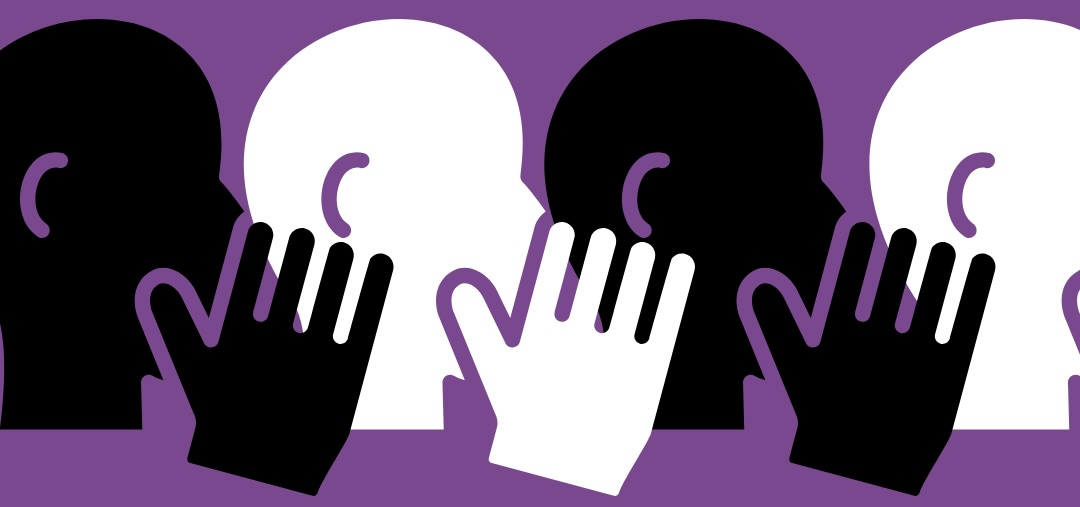Everyone has gossiped at one time or another. Some people feel ashamed to have gossiped, while others take pride in passing on rumors or sharing facts about other people’s lives. There seem to be two perceptions of gossip, good or bad, but is it possible that gossiping can be both harmful and beneficial?
The Merriam-Webster defines gossip as the act of spreading rumors or facts about someone’s intimate life or revealing sensitive or personal information about other people. In this generation, I’ve noticed that gossip is very common. Most of us don’t second guess whether we may be harming someone by doing so, and not many people think introspectively about why they feel the need to gossip.
Author Mel Robbins is credited with saying, “people who gossip with you, will gossip about you,” and I believe this quote is important in understanding why we gossip. Gossiping is a way of bonding with others. You might find yourself trashing another person in your hall with your roommates, or maybe after class you indulge in complaining about the girl next to you with someone else in that class. It’s normal not to like people or to find someone annoying, so when you find someone who agrees with you, it’s an opportunity to relate and start a conversation.
Many people gossip without any intention of hurting the people they’re talking about, but some people purposely spread rumors or share personal information about others. During a night out in Brooklyn, your friend might reveal a secret they heard about someone you know and then you might take the information and relay it either to connect with someone else or for the sole purpose that it’s interesting. Some people claim that gossip can be good sometimes because by sharing information, you’re helping people. I know people try to defend their habit by saying they’re protecting their friends, which is true. Sharing information can forewarn someone of the type of person someone else is. So in that sense, it can be beneficial.
Still, why should you avoid gossiping?
There are a few reasons. For one, participating in gossip can be a poor reflection of your character and impact you negatively. The primary reason to avoid and discourage this type of socialization is because you can seriously destroy someone’s self-worth and damage their mental health. While you might think rumors and talking about people behind their backs is harmless or that maybe someone deserves a bad reputation, you don’t want to be the cause of someone’s anxiety/depression/suicidal thoughts, etc. That impact is very possible; it is seen in teenagers and young adults often, and in severe cases, people hurt themselves because of the talk that surrounds them and their personal lives.
Another reason that might make you second guess gossiping is why you’re doing it. Are you insecure and projecting? Do you feel threatened by someone and feel the need to tarnish their reputation? Also consider what you’re gaining from gossiping; if it’s nothing, then you won’t lose anything by not participating either. If your reasons for gossiping are “entertainment” or “amusement,” then ask yourself if it’s worth the harm you’re causing the subject of your gossip. The golden rules we’ve learned since childhood are still very powerful phrases in adulthood: “If you have nothing nice to say, don’t say anything at all” and “Treat others how you want to be treated.” Before speaking, think and reflect. If you wouldn’t say something to someone’s face, there’s a reason why. Don’t rely on the possibility that what you say won’t get back to someone because most of the time it does.
You might think gossip is unavoidable, but this assumes that gossip is the same as venting, which is not the case. Gossip is spreading information and rumors about other people, whereas venting and ranting to your friends is letting off some steam about your own personal life. You can vent while avoiding talking about others or unnecessarily beating them down. If your boss is annoying, you can admit that while complaining about your day. But if your boss is having an affair, for example, your rant can stay a rant if you keep that secret to yourself, but if in the heat of the moment you decide you want to hurt her reputation and you bring up that secret, then you crossed the line into gossiping.
There’s obviously no clear line that we can refer to, but like I said, consider others.
I have always encouraged my friends and family not to gossip, and they always tell me they don’t care because it’s fun, but if you give it a shot for two weeks, you’ll notice the benefits it has on you as well. For one, when you disengage from gossip, then you’ll find yourself with people you can trust who won’t gossip about you. Avoid drama because, as we know, we often get pulled into drama through gossip and rumors. To give yourself a more peaceful life, be kind and find other ways to connect with people.
Issues can be resolved face-to-face with grace. Instead of gossiping, try being more positive every day. Give people more compliments, help someone out and engage in supportive and uplifting conversations.
Loresa Zeqiraj, FCRH ’28, is an international studies major from Yorktown Heights, N.Y.












































































































































































































